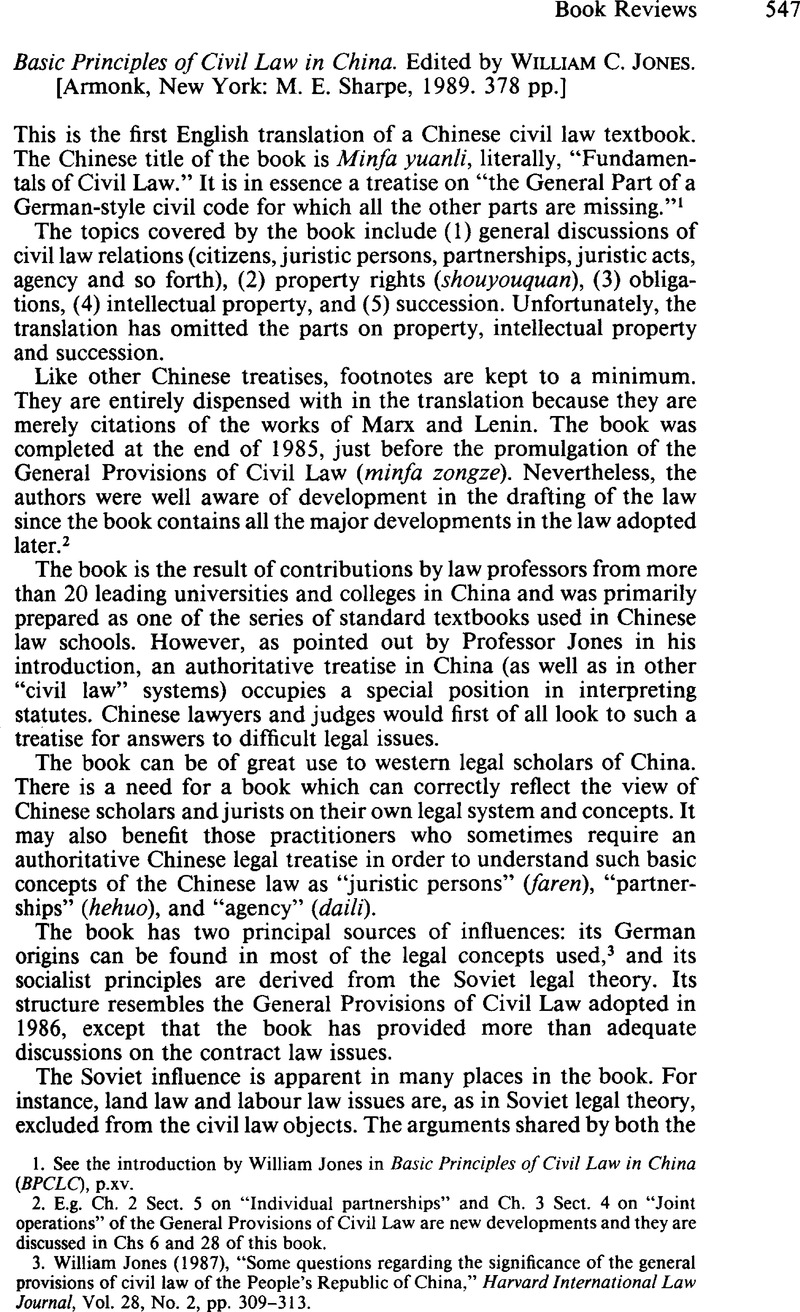No CrossRef data available.
Article contents
Basic Principles of Civil Law in China. Edited by William C. Jones. [Armonk, New York: M. E. Sharpe, 1989. 378 pp.]
Published online by Cambridge University Press: 12 February 2009
Abstract

- Type
- Book Reviews
- Information
- Copyright
- Copyright © The China Quarterly 1990
References
1 See the introduction by William Jones in Basic Principles of Civil Law in China (BPCLC), p.xv.
2 E.g. Ch. 2 Sect. 5 on “Individual partnerships” and Ch. 3 Sect. 4 on “Joint operations” of the General Provisions of Civil Law are new developments and they are discussed in Chs 6 and 28 of this book.
3 Jones, William (1987), “Some questions regarding the significance of the general provisions of civil law of the People's Republic of China,” Harvard International Law Journal, Vol. 28, No. 2, pp. 309–313.Google Scholar
4 Jones, BPCLC, pp. 18–19. See alsoSmirnov, B. T., Soviet Civil Law: Part One (Leningrad: Leningrad University Press, 1982)Google Scholar(trans, into Chinese by Huang Liangping and Ding Wenqi, 1987), pp. 19–20.
5 Apart from the legal issues involving land leases and employing labour by private and foreign investment enterprises, many other matters such as legal status of privately-owned enterprises, leasing of state enterprises, state enterprise operation contracts (guoying qiyie chengbao hetong), and rural contractual household business (nongcun chengbao jingyinghu), hve also been avoided by the book. In fact, all these aspects have been debated extensively in Chinese legal journals and press. The principal reason for not covering these issues is probably due to lack of consensus among the authors involved in writing this book.
6 Jones, BPCLC, pp. 126–27.
7 Chinese jurists consider that “socialist commodality relations” are different from the commodity relations in a capitalist country because they are formed on the basis of public ownership of means of production and guided by the state planning. The purpose of socialist commodity production is not to maximize profits, but to fulfil the needs of the people and society for material and cultural life. Here, once again the logic of argument goes back to Stalinist economic theory. See Jones, BPCLC, p. 11.


